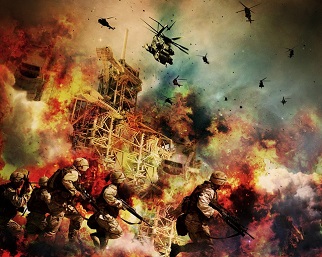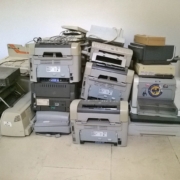Ukraine – Some Procurement and Supply Chain Thoughts
I’ve caused some controversy on LinkedIn by asking questions about how Russia seems to be able to afford so much more military equipment than the UK for about the same level of expenditure. That generated some interesting comments and also some people feeling this isn’t the right time to ask such questions.
But a foreign policy expert from the Atlantic Council (and an eastern European himself), Damir Mirusic, says this “ It’s time for Europeans to stop watching in sorrow and guilt, and start watching with furious anger. Stop eulogizing your dreams about a better world. Wake up”.
That comment has been playing in my head for a couple of days now. I’ve felt “furious anger” since Thursday, anger that we have allowed ourselves to be “played” by Putin. We’re almost all complicit in this – me included.
Russia is not an economic powerhouse. But we’ve run down our military capability, wasted money on military equipment that doesn’t work. We’ve offered succour to every Putin crony and Russian crook who wanted to launder their money through London and enjoy our lifestyle. Russian money has funded political parties and the Brexit campaign. (No, I wasn’t a Remainer, actually). London lawyers get rich suing journalists when they get too close to the truth about the oligarchs. Absolute di****ds like Arron Banks and Farage have spouted their nonsense in support of Putin (and don’t get me started on the equivalent in the US). And I haven’t been out on the streets or even out on Twitter making enough noise about these issues.
So it feels like a time to ask difficult questions, and not just in the UK, I should say. I heard a German commentator say that the entire German foreign policy approach of the last 20 years “lies in tatters”. Angela Merkel carries some responsibility here, as she does for Brexit. Her reputation is slipping away. Many European countries have failed to spend enough on defence, relying on the US to protect us from our foes. Energy dependence was another mistake. That has to stop now, and the amazing response of many countries including Germany in the last couple of days suggests that we have entered a new era at incredible pace.
Anyway, trying to be calm… there are going to be many more difficult questions for businesses over the coming and months. That will apply on the revenue side – if Russian assets are frozen in Europe and the US, what might happen to factories owned by “our” firms in Russia, or stakes in Russian firms e.g. BP now trying to offload its 20% of Russian oil giant Rosneft. But of course there are also major supply chain and procurement implications. This isn’t by any means an exhaustive list, and things will change daily or hourly, but issues are going to include;
Materials / products sourced from Russia – sanctions will certainly restrict some trade and buyers will have to be aware not just of first tier issues but what happens down the supply chain. Some may not even be aware that a material or component is of Russian origin and is important for a supplier’s supplier or even a supplier’s supplier’s supplier… etc. 40% of the world’s supply of Palladium comes from Russia, for instance.
Suppliers in Ukraine – not just raw material or products are affected. Ukraine has a pretty large international services sector now. For instance, I have friends who have been working with very capable software development firms in that country. I have no idea what is going to happen to that sort of trade, or whether those young programmers are currently out in a trench somewhere with a rifle. It’s a terrifying thought.
Shortages of some products and consequent inflation – we’ve already seen major price increases for a number of commodities (oil, grain etc). Whatever happens it seems likely that some of these issues won’t be reversed quickly. There will no doubt also be shortages of some manufactured goods too, whether because of sanctions or reduced production levels.
A desire to improve supply chain resilience – I’ve been speaking about this via various webinars and articles for some time. The pandemic, alongside geo-political tension, has already led many organisations to look at reducing dependence on “global sourcing” and instead consider re-shoring, insourcing and local / regional sourcing. That is only going to increase in pace, I suspect given what is going on now, meaning more work for procurement teams.
Shipping – I’m far from being a deep logistics expert but just reading about the strategic importance of the Black Sea makes you realise that there may well be consequences of the conflict in terms of transportation costs, timings and availability of capacity. Air space restrictions will have an impact too.
I’m sure there are major issues I’ve missed. But that’s enough for now and that list will I’m sure keep many of my professional colleagues busy for some time to come. Finally, I have made a donation to the UNICEF Ukraine fund. It feels like the most useful and tangible thing I can do right now.
PS the importance of good logistics management is being demonstarted very vividly by the Russian advance …







Leave a Reply
Want to join the discussion?Feel free to contribute!